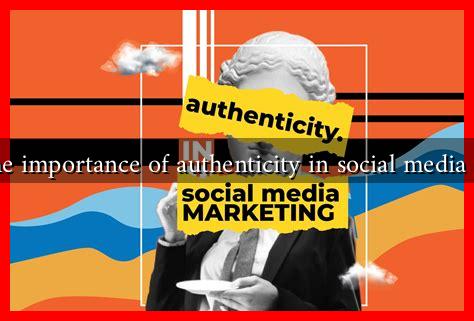-
Table of Contents
The Importance of Authenticity in Social Media Marketing
In the digital age, social media has become a cornerstone of marketing strategies for businesses of all sizes. With billions of users engaging on platforms like Facebook, Instagram, Twitter, and TikTok, brands have a unique opportunity to connect with their audience. However, the effectiveness of these connections hinges on one crucial element: authenticity. This article explores the importance of authenticity in social media marketing, supported by examples, statistics, and case studies.
Understanding Authenticity in Social Media
Authenticity in social media marketing refers to the genuine representation of a brand’s values, mission, and personality. It involves being transparent, honest, and relatable, allowing brands to build trust and foster deeper connections with their audience. In a world where consumers are increasingly skeptical of traditional advertising, authenticity has emerged as a vital component of successful marketing strategies.
Why Authenticity Matters
Here are several reasons why authenticity is essential in social media marketing:
- Builds Trust: Authenticity fosters trust between brands and consumers. According to a study by HubSpot, 81% of consumers need to trust a brand before making a purchase.
- Enhances Engagement: Authentic content resonates more with audiences, leading to higher engagement rates. Brands that share genuine stories and experiences often see increased likes, shares, and comments.
- Encourages Loyalty: When consumers feel a connection with a brand, they are more likely to become loyal customers. A study by Oberlo found that 54% of consumers want to see more content from brands they follow.
- Drives Word-of-Mouth Marketing: Authentic brands are more likely to be recommended by consumers. According to Nielsen, 92% of consumers trust recommendations from friends and family over any other form of advertising.
Examples of Authenticity in Action
Several brands have successfully leveraged authenticity in their social media marketing strategies:
- Patagonia: The outdoor clothing brand is known for its commitment to environmental sustainability. Patagonia’s social media campaigns often highlight their eco-friendly practices and encourage consumers to make responsible choices, resonating deeply with their target audience.
- Dove: Dove’s “Real Beauty” campaign challenged traditional beauty standards by featuring real women of all shapes and sizes. This authentic approach not only garnered significant attention but also fostered a strong emotional connection with consumers.
- Glossier: The beauty brand has built its identity around user-generated content and customer feedback. By showcasing real customers using their products, Glossier has created a community that feels valued and heard.
Statistics Supporting Authenticity
Several statistics underscore the importance of authenticity in social media marketing:
- According to a survey by Stackla, 79% of consumers say user-generated content highly impacts their purchasing decisions.
- A report from Social Media Examiner found that 86% of marketers believe authenticity is crucial for building brand loyalty.
- Research by Forbes indicates that 90% of consumers are more likely to trust a brand that is transparent about its practices.
Conclusion
In conclusion, authenticity is not just a buzzword in social media marketing; it is a fundamental principle that can significantly impact a brand’s success. By building trust, enhancing engagement, encouraging loyalty, and driving word-of-mouth marketing, authentic brands can create lasting connections with their audience. As consumers continue to seek genuine interactions in an increasingly digital world, businesses must prioritize authenticity in their social media strategies. Embracing this approach will not only help brands stand out in a crowded marketplace but also foster a loyal customer base that believes in their mission and values.

